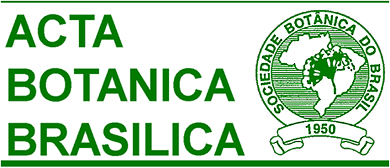Spanish cedar (Cedrela odorata L.) and Yellow poui (Tabebuia serratifolia Nichols.) are economically valuable tropical tree species that have been threatened by predatory logging and by forest fragmentation. Their seeds are wind-dispersed and both the species colonize and grow-up in pastures. This study compared the genetic diversity in a pasture-established population to a forest population. Thirty yellow poui trees were genotyped with five isozyme loci and fifty four spanish cedar trees were genotyped with four microsatellite loci. Genetic diversity was high in both the populations. In yellow poui, genetic diversity was higher in the pasture population. It was observed loss of alleles in cedar pasture population (Â = 11,75 alleles/locus) in relation to the forest population (Â = 14,50).Moreover, 31% of the cedar alleles were private to the forest population. Genetic divergence was null in yellow poui populations, but significant in the cedar ones (2,2%). Pasture populations don't show evidence of severe genetic bottleneck for both the species. Colonization of anthropogenic areas by these species was efficient, but it requires continuous gene flow, through successive generations, in order to restore (for spanish cedar) and maintain (for yellow poui) the levels of genetic diversity observed in the forest population.
Cedrela odorata; Tabebuia serratifolia; seed dispersion; connectivity; forest fragmentation




